
Over April and May 2023, Advance CTE hosted three Perkins Regional Meetings across the country in Minneapolis, Baltimore and Phoenix, with over 200 leaders from across 40 states and territories which was made possible through support from the Gates Foundation. The agenda for the three meetings was designed for state leaders from secondary, postsecondary and workforce development to connect and collaborate on ways to enhance their current Career Technical Education (CTE) systems and programs.
States participated in keynote presentations, workshops, roundtables focused on supporting special populations and cross-state sharing sessions with the intent of building and strengthening the career preparation ecosystem for all learners across the nation. State leaders and our Advance CTE team were both energized by the engagement and inspired by the dedication of all those that attended the meetings and are working to create a high-quality and equitable system that supports all CTE learners.
While each state has its own unique challenges, accomplishments and opportunities, certain recurring themes emerged across multiple states. The national CTE landscape is one of great opportunity but will need support to provide access to high-quality experiences for all CTE learners.
Key Takeaways
Accomplishments
- Strong partnerships and support between private industry, education and government leaders to support economic development
- Implementation of needed improvements garnered from Comprehensive Local Needs Assessments (CLNA) at the state and local levels
- Collaboration and cooperation among state workforce agencies and departments of education and higher education during the Perkins Regional Meetings
- Work-based learning (WBL) program guidance on how to focus staffing and funding resources
Challenges
- CTE instructor training, recruitment and retention
- Staff turnover at both the local and state level
- Data management, collection and utilization
- Collaboration between secondary, postsecondary and workforce development
- Capacity building to meet the demands of learners and region-specific needs
Using the information gained at these meetings, CTE leaders will be able to build upon the accomplishments and help provide resources, tools and support to address the challenges within the current system, with an eye towards how states will leverage the potential to revise or update their Perkins V state plans as their original four-year plans come to a close next spring. Advance CTE continues to be available as a resource to provide best practices, information on innovative policies on the horizon and technical assistance to states to achieve our shared vision of Without Limits: A Shared Vision for the Future of Career Technical Education (CTE Without Limits).
As states work to address the challenges they face, Advance CTE has numerous resources available below and through the Learning that Works Resource Center to assist with goal set and challenges identified during the meeting:
- Perkins V Supports Teacher Recruitment and Retention
This resource discusses the mechanisms in Perkins V that support teacher recruitment and retention, an overview of how this appears in Perkins V state plans and examples of how states are tackling the challenge of recruiting and retaining qualified and diverse CTE instructors. - Championing High-Quality Data
This brief addresses the importance of a unifying vision for education and workforce that draws upon and regularly uses postsecondary CTE data to measure progress and guide state policy and practice. - Beyond the Numbers: Design Principles for CTE Data Reporting and A Toolkit for Communicating CTE Data
This report, developed with input from a shared solutions workgroup of national and state experts, provides nine principles for developing effective and accessible CTE data reporting tools. A companion toolkit contains guidance, best practices and tools that CTE leaders can use to create communications to help stakeholders better understand and act on CTE data. - Coordinating Across Perkins V and the Workforce Innovation and Opportunity Act
This guide looks at six opportunities to promote coordination across Perkins V and WIOA as states develop and implement plans under Perkins V. - Strengthening Career Pathways Through the Power of State and Local Partnerships
This resource is the third in a series of policy briefs centered on strengthening career pathways. It offers promising practices for leveraging the strengths of state and local leaders to cultivate sustainable, scalable partnerships and advance high-quality career pathways.
Save the Date for our next in-person opportunity to connect and receive support from Advance CTE! Our 2023 Fall Meeting: Elevating CTE’s Impact, will be held October 16-18 in Baltimore, Maryland.
Paul Mattingly, Senior Policy Associate


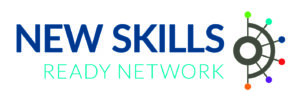 As part of ongoing blog topics providing updates on this initiative, Deshaun Mars, Vice President, Global Philanthropy (Job Skills,) and Brice Thomas, Policy Associate engaged in a discussion to highlight JPMC’s view of the initiative and how this work advances JPMC’s philanthropic portfolio and ultimately building high-quality local and state career pathway systems.
As part of ongoing blog topics providing updates on this initiative, Deshaun Mars, Vice President, Global Philanthropy (Job Skills,) and Brice Thomas, Policy Associate engaged in a discussion to highlight JPMC’s view of the initiative and how this work advances JPMC’s philanthropic portfolio and ultimately building high-quality local and state career pathway systems.  It is within this spirit that makes Advance CTE’s participation in the new initiative –
It is within this spirit that makes Advance CTE’s participation in the new initiative – 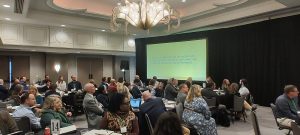 he partners, funders and state and local teams came together around a shared commitment to quality, equity and innovation – and ready to roll up our sleeves and do the hard work of confronting systemic barriers, particularly those faced by historically marginalized populations, activate the policy and practice levers that will drive scale and sustainability, and generate next-generation solutions to keep our field moving at the pace that our learners and industry demand. Between the Impact and Innovation Cohorts, at the end of the two-years, we will have incredibly strong proof points at the state and local level and new ways of designing pathways systems than we couldn’t have imagined today.
he partners, funders and state and local teams came together around a shared commitment to quality, equity and innovation – and ready to roll up our sleeves and do the hard work of confronting systemic barriers, particularly those faced by historically marginalized populations, activate the policy and practice levers that will drive scale and sustainability, and generate next-generation solutions to keep our field moving at the pace that our learners and industry demand. Between the Impact and Innovation Cohorts, at the end of the two-years, we will have incredibly strong proof points at the state and local level and new ways of designing pathways systems than we couldn’t have imagined today.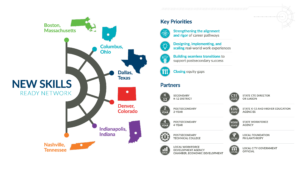
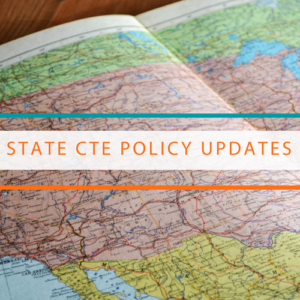 October 7 was National Manufacturing Day but, in Ohio, the celebration lasts the entire month. . Ohio uses this time to raise awareness of the various manufacturing pathways available to learners in the state and inspire those learners to join. Ohio already has significant investments in the manufacturing economy which generates more than $125 billion. However, knowledge of how many different skill sets and jobs are available in the industry is still not widespread. By taking advantage of Manufacturers Month, this post highlights the innovative ways Ohio is uplifting the manufacturing pathway as well as leveraging the support of The Ohio Manufacturers’ Association (OMA), which is bringing awareness to various grants and programs, some of which have been made recently available to Ohio residents.
October 7 was National Manufacturing Day but, in Ohio, the celebration lasts the entire month. . Ohio uses this time to raise awareness of the various manufacturing pathways available to learners in the state and inspire those learners to join. Ohio already has significant investments in the manufacturing economy which generates more than $125 billion. However, knowledge of how many different skill sets and jobs are available in the industry is still not widespread. By taking advantage of Manufacturers Month, this post highlights the innovative ways Ohio is uplifting the manufacturing pathway as well as leveraging the support of The Ohio Manufacturers’ Association (OMA), which is bringing awareness to various grants and programs, some of which have been made recently available to Ohio residents.  In August, the OMA was named one of the 32 finalists for the “
In August, the OMA was named one of the 32 finalists for the “
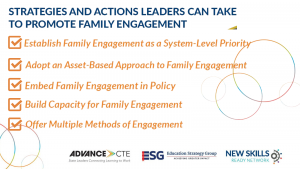
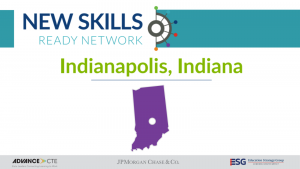 For this post, Senior Policy Associate Dan Hinderliter interviewed Indiana State CTE Director Anthony Harl and Ascend Indiana Vice President and Co-founder Stephanie Bothun about driving intentional connections between state and local partners. In Indiana, the Office of Career and Technical Education (CTE) is embedded in the
For this post, Senior Policy Associate Dan Hinderliter interviewed Indiana State CTE Director Anthony Harl and Ascend Indiana Vice President and Co-founder Stephanie Bothun about driving intentional connections between state and local partners. In Indiana, the Office of Career and Technical Education (CTE) is embedded in the 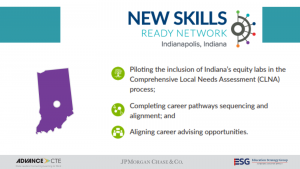 Since this initial partnership developed through the
Since this initial partnership developed through the 
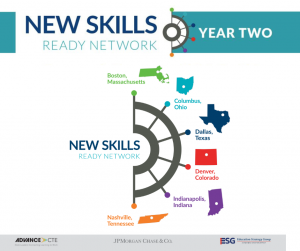 Today, Advance CTE and Education Strategy Group (ESG) released an annual report and site snapshots for year two of the
Today, Advance CTE and Education Strategy Group (ESG) released an annual report and site snapshots for year two of the 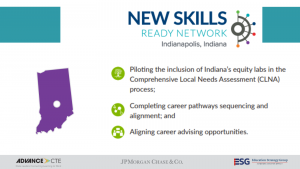
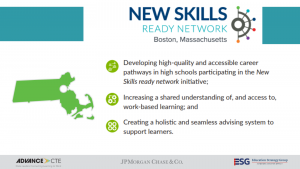 Boston, Massachusetts,
Boston, Massachusetts,